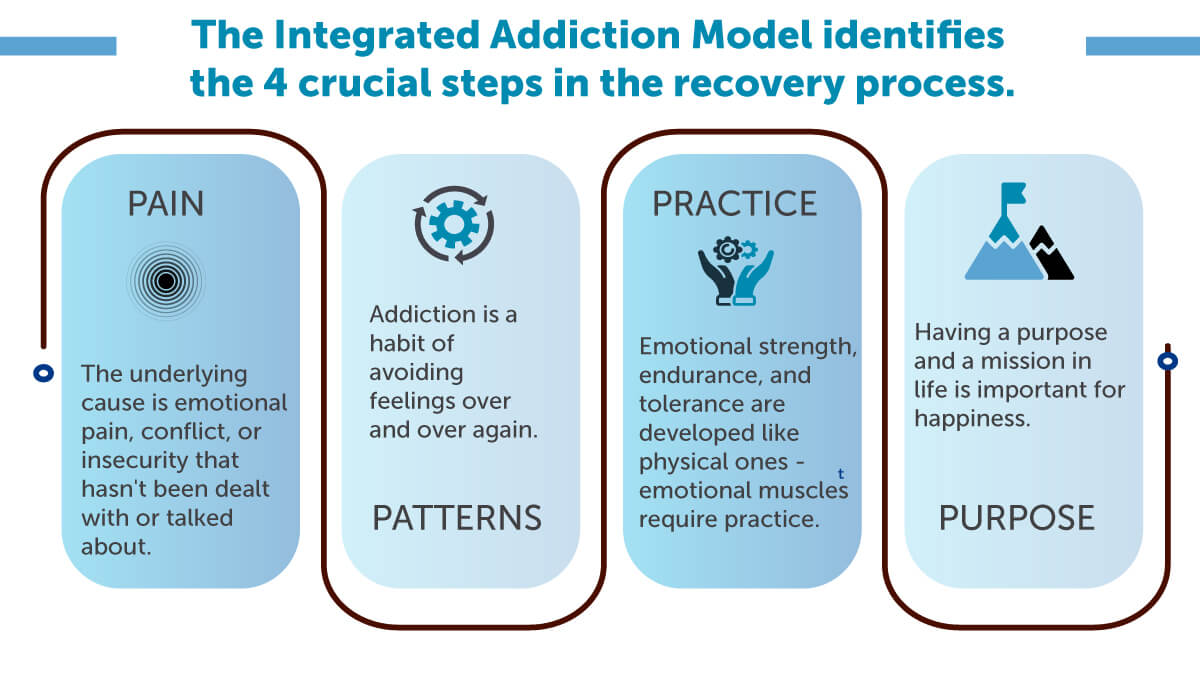Identifying the 4 Crucial Steps in the Recovery Process
1. Pain: We believe that unresolved or unexpressed emotional pain, conflict, or insecurities are the underlying root cause for most if not all, addictive and self-defeating patterns. Therefore, it is very important for our clients to learn how to identify, tolerate, and release painful emotions, past and present.
2. Patterns: We define addiction as a pervasive pattern of avoiding emotions. Therefore, it is imperative that our clients identify ALL addictive and unhealthy patterns (current and potential) to prevent alternative addictive patterns from developing to replace the ones just broken (addiction substitution). We also recognize that many mental health symptoms can become addictive cycles themselves. Other addictive patterns (process addictions) can include gambling, gaming, pornography, sex, co-dependency, work, food, shopping, exercise, self-harm, dissociation, isolation, etc.
3. Practice: We teach that emotional strength, endurance, and tolerance are developed much like physical strength, endurance, and tolerance. Developing "emotional muscles" takes practice and repetition. This is done through participation in a variety of experiential modalities that provide real-time practice and active release of emotions. Mind-body integration is pivotal to this process.
4. Purpose: We understand that purpose and personal mission are critical to living a fulfilled and happy life. Chronic addictive patterns and mental health struggles can often eclipse one’s sense of self-worth and identity. Helping our clients identify their strengths, personality traits, and passions is an active part of our treatment planning.

